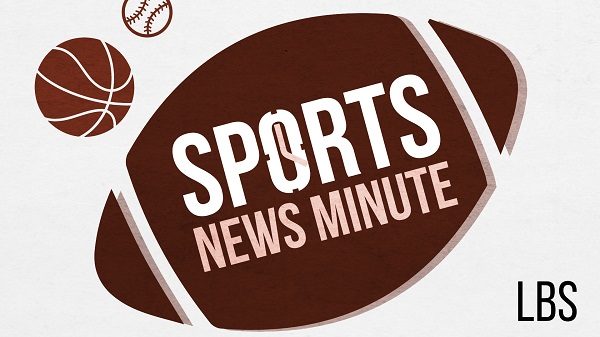Baseball’s Unwritten Rules? Not Worth the Paper They’re Printed on
 Do you remember the time that you first felt the whip of a switch across your backside for spoiling your appetite with junk food before dinner? That might have been mankind’s first encounter with the phenomenon known as the unwritten rule.
Do you remember the time that you first felt the whip of a switch across your backside for spoiling your appetite with junk food before dinner? That might have been mankind’s first encounter with the phenomenon known as the unwritten rule.
There is no document from the annals of Biblical history that suggests pre-meal Gobstoppers are verboten and will lead to 40 days of flooding. No gubernatorial missives prohibit an impromptu course of Funions as a misdemeanor. There is no contractual obligation that specifies at what time Ho Hos need to be eaten. But, at some point during the course of human being’s existence, we learned via negative reinforcement that the practice of consuming various hydrogenated tube-shaped snack cakes before consuming your tubers was generally not something done. Consider that the prepubescent equivalent of not stealing bases when up by seven runs or more.
Baseball is awash in regulations to the extent that hurling a rule book in someone’s direction can be construed as assault with a deadly weapon (which unsurprisingly may have been attempted in the past on numerous occasions). In a game of numbers it should come as no surprise that baseball has such an extensive set of laws that, had Alexander Cartwright known what has become of the seemingly simple game he invented, he might have just thrown up his hands and given competitive shuffleboard a try. There are rules to dictate the slope of the mound, the dimensions of the catcher’s mitt, and even a tutorial on how to wear a jock strap (ok I made the last one up, because my computer exploded trying to download the rule book).
In fact there are so many clauses, laws, and guffaws to the game of baseball that there have been so-called “unwritten rules” to sprout up throughout the game’s storied existence. Perhaps due to memory loss brought on by a peanut-and-Cracker Jack-induced haze or simply because there wasn’t a workable pen around, these rules have continued to exist outside the Major League Rule Book that has found use in balancing Bud Selig’s old rickety kitchen table. Take a look.
You will not find anything codified about bunting in the 8th inning of a perfect game, as Ben Davis did back in 2001 to break up a Curt Schilling perfect game. Schilling got the last laugh: Ben Davis is now playing with the Camden Riversharks, as if that is some sort of retribution. There is no treatise telling teams that runners at 2nd base can’t look into the catcher to try and signal the batter as to the upcoming pitch (something A-Rod and Tex have done). Hey, not everyone is good at multiple choice testing.
Whatever happened to the advice we were given, “to play nice.” Well, you may remember 2006, when Ozzie Guillen summoned a rookie pitcher by the name of Sean Tracey to pitch to (read: pitch at) Hank Blalock after White Sox catcher A.J. Pierzynski was hit twice earlier in the game. Tracey induced a ground out from Blalock and retired the batter he was brought on to face. Mission accomplished? Hold the phone, Ethan Hunt. What took place next in the dugout was two parts Christian Bale, one part Alec Baldwin. The Oz-man sure did cometh. Following a pitching change, Screamin’ Guillen was seen bellowing at the young pitcher. Throw in a shoe, and it was the caricature of Nikita Khruschchev set to a baseball diamond. Soon, Tracey was demoted to the minor leagues. Some say they treated Jimmy Hoffa better than that.
I never learned any of these tactics by endlessly watching those Tom Emanski VHS tapes, costing me five installments of $19.99.
The latest violator of baseball’s arbitrary arbitration was Jake Fox. Normally a player for the Baltimore Orioles enjoys all the non-pressure situations of playing for a team cloaked in anonymity. Perhaps winning by 10 runs in a spring training game for a team that has not attained any modicum of Major League significance since the last Presidential impeachment would fit the bill. Not so for Mr. Fox, apparently the first Orioles utility player to attain notoriety since Billy Ripken and his naughty bat.
Unlike what the name of the position suggests, a utility player is not the one in charge of keeping the lights on at the stadium (though this was part of the job description for Sherman Obando and Jamie Quirk). The utility player serves as a prototypical role player who is called upon to come off the bench at key points in the game. Apparently “key points” is a fleeting term.
 Fox was at the plate in a game where his team was leading by 10 in a spring training game with a rookie on the mound (ostensibly a contest that still had more viewers than my articles), and a 3-0 count. Go through the 136 PDF pages of MLB rule book goodness and you will not find anything that makes it illegal to swing at a pitch in this situation. Can you get guess what Jake did? Well, he didn’t put the ball in play (perhaps his worst mistake), but hit it foul, and eventually drew a walk. Both the opposing manager, Jim Leyland (ironically the same guy who used to wantonly break the rules by smoking in the dugout in front of the “No Smoking in the Dugout sign”), and his own skipper, Buck Showalter, reacted as if he swung at the Hope diamond- hopeless. Apparently, Fox didn’t study the unwritten rule book … which is seemingly written in invisibly ink on disappearing paper.
Fox was at the plate in a game where his team was leading by 10 in a spring training game with a rookie on the mound (ostensibly a contest that still had more viewers than my articles), and a 3-0 count. Go through the 136 PDF pages of MLB rule book goodness and you will not find anything that makes it illegal to swing at a pitch in this situation. Can you get guess what Jake did? Well, he didn’t put the ball in play (perhaps his worst mistake), but hit it foul, and eventually drew a walk. Both the opposing manager, Jim Leyland (ironically the same guy who used to wantonly break the rules by smoking in the dugout in front of the “No Smoking in the Dugout sign”), and his own skipper, Buck Showalter, reacted as if he swung at the Hope diamond- hopeless. Apparently, Fox didn’t study the unwritten rule book … which is seemingly written in invisibly ink on disappearing paper.
If a team is up by 30 in basketball, you won’t see a team hold onto possession, let the 24-second clock run out just to avoid hurting the other team’s already shattered ego. Heck, some guys like JaVale McGee have even tried to sell their soul for a triple-double, even with the team up by double digits. Football teams may run down the clock with running plays, but they are not running in the opposite direction (unless they wear Carolina Panthers uniforms).
The unwritten rules in baseball have been passed down, via osmosis or Da Vinci Code fashion, from generation to generation, inspiring new ways to bring about lunacy in the dugout. At this rate, I’m just glad some things are still being written. Otherwise, frankly, I’d be out of a job.
Danny Lee has been involved in sports media for over seven years … While at UCLA, he turned his grade school doodles into a position with the Daily Bruin, and continues his diatribes to this day. You can read his contributions to Larry Brown Sports every Wednesday.







